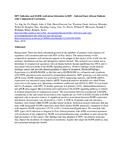| dc.contributor.author | Yu, Jing Jie | |
| dc.contributor.author | Fu, Pingfu | |
| dc.contributor.author | John, J | |
| dc.contributor.author | Pink, Dawn Dawson | |
| dc.contributor.author | Jay, Wasman | |
| dc.contributor.author | Orem, Jackson | |
| dc.contributor.author | Mwanda, Walter O | |
| dc.contributor.author | Honglan, Zhu | |
| dc.contributor.author | Xiaobing, Liang, | |
| dc.contributor.author | Guo, Yi | |
| dc.contributor.author | Petros, William P | |
| dc.contributor.author | Mitsuyasu, Ronald T | |
| dc.contributor.author | Wabinga, Henry | |
| dc.contributor.author | Remick, Scot C | |
| dc.date.accessioned | 2013-07-04T08:07:39Z | |
| dc.date.available | 2013-07-04T08:07:39Z | |
| dc.date.issued | 2010 | |
| dc.identifier.citation | O, MW. 2010. HPV Infection and EGFR Activation/Alteration in HIV-Infected East African Patients with Conjunctival Carcinoma. | en |
| dc.identifier.uri | http://profiles.uonbi.ac.ke/walter_mwanda/publications/hpv-infection-and-egfr-activationalteration-hiv-infected-east-african-pat | |
| dc.identifier.uri | http://erepository.uonbi.ac.ke:8080/xmlui/handle/123456789/45099 | |
| dc.description.abstract | Background: There has been substantial growth in the numbers of patients with conjunctival squamous cell carcinoma infected with HIV in East Africa. The natural history of the conjunctival squamous cell carcinoma appears to be unique in this
region of the world, but the etiologic mechanism unclear and therapeutic options
limited. This research was carried out to determine if conjunctival squamous cell carcinoma harbors human papillomavirus DNA and is associated with activation of
the EGFR signaling pathway. Positive findings would identify etiologic causes and provide clinical guidance to improve treatment.
Methods/Findings: Expression of p-MAPK/MAPK, p-Akt/Akt and p-EGFR/EGFR in c
ell nuclei and cytoplasm of38 FFPE specimens were assessed by immunohistochemistry; HPV genotype was detected by qPCR assay; EGFR mutation was assessed by DNA sequencing analysis; and EGFR mRNA expression was measured using relative qPCR. Statistical analyses included two-sided Fisher exact test or chi-square test, Spearman correlation coefficient and ANOVA. HPV 18 was found in61% of samples, with HPV 16 double-genotype in 6 patients (16%). Immunohistochemistry and qPCR data suggest that activation and expression of the EGFR signaling pathway is related to disease progression of conjunctival cancer. The
associations between cytoplasmic p-MAPK, cytoplasmic p-Akt and tumor invasiveness were significant (p = 0.05 or 0.028).Nuclear p-EGFR appeared only in invasive tumors. A significant positive association between EGFR expression and disease invasiveness was observed (p = 0.01). A SNP in 10 patients and one missense mutation were found
within EGFR tyrosine kinase domain. Statistical analysis indicates that pat
ients with measurable EGFR expression more likely harbor EGFR mutations, compared to those with negative EGFR expression (35.3% vs.0%).
Conclusions/Significance: We conclude that HPV types 16/18 infection is frequent in East African patients with AIDS associated squamous cell carcinoma of the conjunctiva. EGFR activation/alteration may contribute to and sustain the high prevalence of this cancer. Our findings hint that adoption of HPV vaccination strategies may impact the incidence of conjunctival carcinoma. Agents that target the EGFR pathway may have potential therapeutic benefit. | en |
| dc.language.iso | en | en |
| dc.publisher | University of Nairobi | en |
| dc.title | HPV Infection and EGFR Activation/Alteration in HIV - Infected East African Patients with Conjunctival Carcinoma | en |
| dc.type | Article | en |
| local.publisher | Institute Of Tropical And Infectious Diseases | en |

